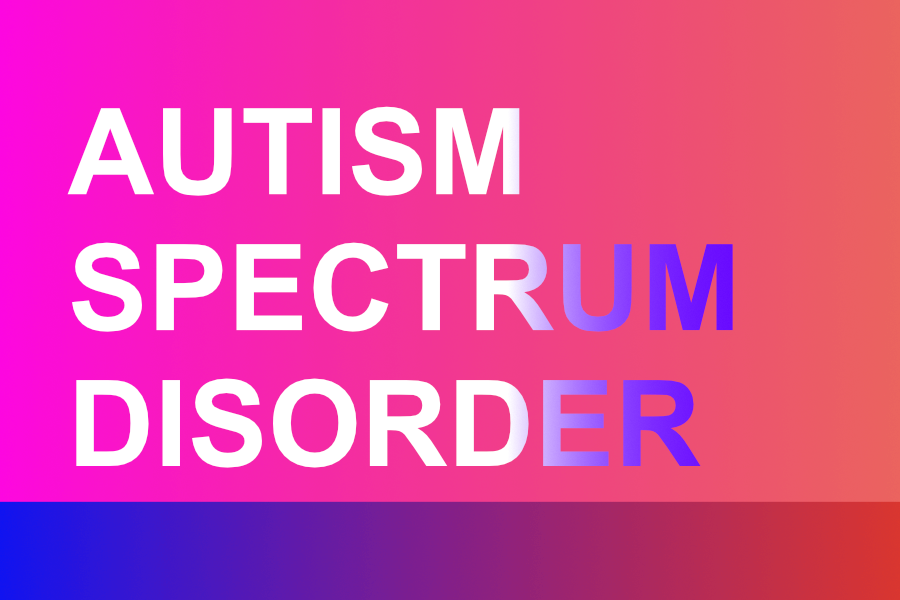Learn about Autism Spectrum Disorders (ASD)
What are ASD’s?
Autism spectrum disorders are a set of conditions that influence the way a person takes in information. People with ASD’s can experience difficulties in communication such as understanding what others mean or be hyper-stimulated by certain sensory information (noises, lights, etc.) which can cause them anxiety. They may also be overly focused on certain things, talk about a limited range of subjects and need more time to understand
other things. As a spectrum of disorders there is a wide range of ways ASD’s can present. Many people with autism can function similarly to how neurotypical people do but some have more profound difficulties such as severe deficits in social communication or an inability to speak and require additional support. Everyone with ASD’s is different and should be supported individually rather than to a fixed plan.
What causes them?
ASD’s appear to be related to the brain processing information differently. Some experts believe that people with ASD’s process information more serially than in parallel, hence an intense focus and expertise in some areas but difficulty in others. As social interactions
require parallel thinking of al the information the other person is putting out and what we previously learned about them, this may be why people with ASD’s have difficulty with social interaction.
There are many theories and potential causes of this. There is good evidence that autism is partially genetic as people with autistic relatives are more likely to have ASD’s and people with genetic conditions such as Fragile X Syndrome are more likely to have
ASD’s. Low birth weight and having older parents have been associated with ASD’s but it is not clear why. Environmental factors such as heavy metal toxins have also been linked in some studies but again the clearest evidence is in genetic factors. There is a lot of
misinformation around the cause of ASD’s. Vaccines, for example, have been cited as causing ASD’s but there is no scientific evidence for this.
Therapy for people with ASD’s
Therapists don’t directly treat ASD’s as they are not necessarily mental health disorders, more just a different way to taking in information. However, people with ASD’s are more likely to experience mental health issues, especially anxiety but many others. We treat these issues in a way that works for people with ASD’s.
For example- many ASD clients report social anxiety. We work on underlying assumptions and use a technique called social skills training to help them navigate this.
Many ASD clients report finding these situations much easier with the therapeutic skills. Another may be graded exposure therapy to help the client plan to adjust to new things and life changes. This lets us take them where they need to go in a manageable way that
reduces distress and gives the client the confidence that they can adjust to changes. These are just examples, we can work with any issues ASD clients bring us. As a
spectrum disorder, not every client with ASD will be best served by therapy. Those who have more profound issues understanding or cannot speak will not be suitable for therapy but most other ASD clients are, provided the practitioner knows how to facilitate the sessions to support their engagement. As with any client, the sessions will be tailored to you.
Trusted & Private Therapy
Our therapy and counselling services extend to both adults and children. We can work on an individual one to one basis, with couples, families and also groups. We provide a safe space in which you can share your problems as you gain a greater understanding of them. We help you to find ways in which you can either resolve or manage these issues better.
Glossary of Conditions

Anxiety
Anxiety refers to thoughts, feelings and physical sensations of worry or feeling under threat. Feeling like you are struggling to breathe or living your day-to-day life you may benefit from therapy.

Binge Eating Disorder
Binge-eating disorder is a disorder where a person eats a large amount of food in a short space of time. They may not be hungry when doing this, often resulting in physical discomfort.

Depression
Depression is a disorder involving a prolonged period of low mood and it affects people differently. Depression is more than just feeling sad it is a prolonged change in mood.

OCD
Obsessive-compulsive disorder is characterised by recurrent persistent thoughts that cause distress until the person performs ritualised behaviour.

Panic Disorder
Panic Disorder is an anxiety disorder and it occurs when you have a surge of intense fear that strikes suddenly and repeatedly without warning.

PTSD
Post traumatic stress disorder develops after having or witnessing a traumatic experience. This could be an accident, an assault or some forms of abuse.

Anger
It is important to recognise that anger is not necessarily a mental health problem. Everyone experiences the emotion sometimes. It is often a response to mistreatment or abuse.

Generalised Anxiety Disorder
Generalized anxiety disorder, or GAD, is a mental illness. It belongs to a group of illnesses called anxiety disorders.

Anorexia Nervosa
Anorexia nervosa involves a reduced food intake, below a person’s medical needs. Their mind will be very focused on eating habits to change your bodies size and shape.

Autism Spectrum Disorders
Autism spectrum disorders (ASD) are a set of conditions that influence the way a person takes in information. People with ASD’s can experience difficulties in communication.

Borderline Personality Disorder
Those who have Borderline Personality Disorder (BPD) suffer from recurrent, uncontrollable and difficult changes in mood.

Antisocial Personality Disorder
Those who have antisocial personality disorder display impulsive, irresponsible and risk-taking behaviour.

ADHD
Attention deficit hyperactivity disorder is a neurodevelopmental disorder often first recognised in childhood but it can be lifelong.